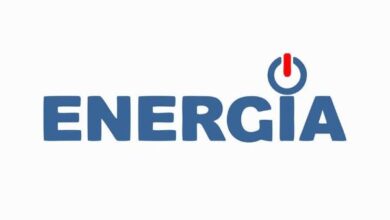Nigeria’s AfCFTA Commitment Deepens with Gazetting of ECOWAS Tariff

Nigeria has officially gazetted its ECOWAS Schedule of Tariff Offers under the African Continental Free Trade Area (AfCFTA), formally committing to zero duties on 90% of goods traded within Africa. It’s a significant leap toward regional integration, positioning Nigerian goods—and businesses—for broader market access, lower trade barriers, and long-term competitiveness across the continent.
Why this matters
Nigeria is no longer just a regional heavyweight—it’s staking its claim as Africa’s trade gateway. With the Federal Government’s gazetting of ECOWAS tariff offers under AfCFTA, Nigerian exporters can now trade seamlessly across the continent, leveraging preferential tariffs and wider market access.
This move arrives just ahead of the 16th Council of Ministers Meeting in Kinshasa and reinforces President Tinubu’s pro-trade economic agenda.
“Nigerian goods are now competitively positioned in the African market,” said Jumoke Oduwole, Minister of Industry, Trade and Investment.
DEEP DIVE: WHAT WAS GAZETTED?
| Item | Detail |
| ✅ Tariff Coverage | 90% of tariff lines for trade in goods will carry zero duties |
| 🔄 Phased Reduction | 10-year plan from 2021–2031 |
| 🔹 Least Developed Countries | 10% reduction annually (50% by 2025) |
| 🔹 Developing Countries | Option of 20% annual reduction or immediate 0% |
| 📦 Goods Movement | Seamless exports from Nigeria now formally accepted under AfCFTA rules |
CONTEXT: WHY THIS IS A GAME-CHANGER FOR NIGERIA
Nigeria’s AfCFTA Role:
- One of the biggest economies on the continent
- Strategic logistics corridor via Lagos–Apapa Port, Lekki Port, Kano–Maradi rail
- Now fully activating tariff privileges to stimulate non-oil exports
Expected Impact:
- Boosts SME growth by lowering entry barriers
- Expands market access for manufacturers and agro-exporters
- Increases intra-African investments
- Enhances Nigeria’s economic diplomacy and influence
WHAT BUSINESSES NEED TO KNOW
🧳 Exporters:
- Eligible to ship to over 40 African countries duty-free
- Must comply with Rules of Origin
- Register with AfCFTA e-portal
🏭 Manufacturers:
- Can plan long-term scale-ups with more predictable tariff structure
- Opportunity to enter new regional markets with lower costs
🧾 SMEs:
- Leverage digital trade frameworks for e-commerce access
- Support via Nigerian Export Promotion Council (NEPC) and SMEDAN
OPPORTUNITIES VS RISKS
| Opportunities | Risks |
| 🔹 Wider market for Made-in-Nigeria goods | ❌ Non-tariff barriers (NTBs) like border delays, documentation |
| 🔹 Greater investor confidence in Nigeria | ❌ Infrastructure gaps in logistics & power |
| 🔹 Formal entry into AfCFTA’s digital trade era | ❌ Enforcement of standards & quality control |
“Non-tariff barriers and low productive capacity remain the biggest bottlenecks,” Oduwole noted. “Stronger engagement is needed to unlock full benefits.”
TIMELINE SNAPSHOT
| Year | Milestone |
| 2021 | AfCFTA phased tariff reduction begins |
| 2024 | Nigeria’s first shipment under AfCFTA (July) |
| 2025 | 50% tariff reduction to be in effect |
| 2031 | Full 90% tariff line liberalization |
THE DIGITAL TRADE DIMENSION
Earlier in 2024, Nigeria was named an AfCFTA Digital Trade Co-Champion, cementing its leadership in building e-commerce, logistics, and customs digitization frameworks. This development now aligns tariff policy with tech-driven trade growth.
“Nigeria is not only lowering tariffs—it’s also building digital rails to move goods faster and smarter,” said a source at the Ministry of Trade.
BRANDECONOMY INSIGHT: WHAT COMES NEXT?
To sustain momentum, Nigeria must:
- ✅ Improve export logistics and port efficiency
- ✅ Provide exporters with clear documentation and training
- ✅ Enforce product quality and origin verification
- ✅ Strengthen SME readiness for cross-border e-commerce
🧷 TAKEAWAYS FOR INVESTORS & BUSINESSES
- Nigeria is open for trade, beyond rhetoric—this gazette is proof
- 📦 Manufacturers and exporters should update supply chain strategies
- 🧠 SMEs need to plug into support systems now to avoid being left behind
- 🌐 Digital trade is not an option—it’s the default











